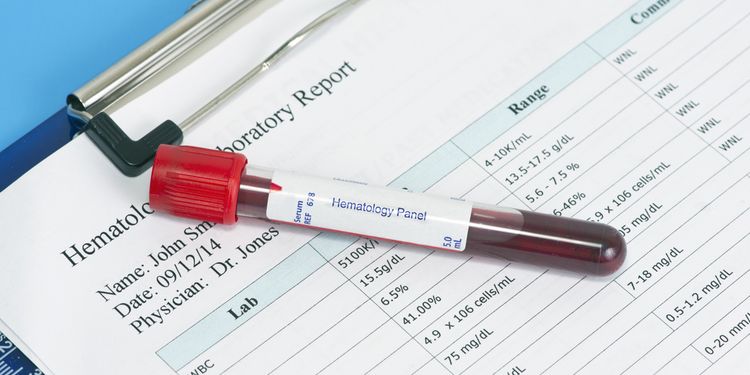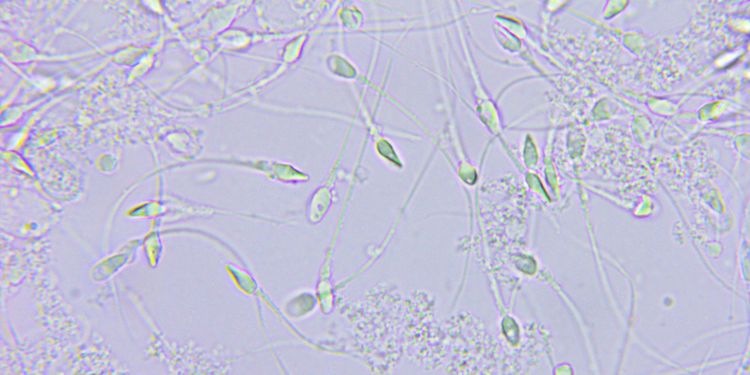An Open Letter to Men Struggling With Infertility

To my fellow men out there- my brothers in this journey we call life:
Infertility is something no man wants to deal with. I imagine you feel an agonizing cocktail of frustration, anxiety, and fear. You’re frustrated with life and your own body— anxious and afraid that time may be running out, that success might never come your way. More than anything, I imagine you’re in pain.
You’re not alone, either. Millions of couples in the US have difficulty getting or staying pregnant, and 40-50% of the time, the male is the sole or contributing cause.
Infertility is a battle no one prepared you for— one that hurts on many levels. I want to prepare you for this battle.

I want to be upfront and honest with you: I’ve never struggled with infertility. I can only imagine what you’re going through. As a fellow man, though— one who very much wants to have kids one day— I can imagine what you’re going through.
And what I can imagine has me fired up to support you in any way I can.
As a writer for Healevate, a large part of my job consists of reading and research. Thanks to this, I happen to know a fair bit about infertility— both what causes it and what steps you can take to defeat it. So I want to share what I’ve learned.
It’s my hope that you walk away from this article feeling empowered.
I want you to know that things can change for the better, that infertility can be treated. If your partner is having trouble getting or staying pregnant, it’s unlikely either of you are flat-out infertile. In most cases of infertility, the root cause is within your control to change.
And I want you to know how to change it. I want you to know exactly what you can do to heal your infertility and improve your chances of becoming a father.
So, without further ado, let’s dive in!

Step One: Get Tested
Male infertility can usually be traced to one of two things: a problem with the sperm (not enough is produced or it’s too slow or oddly shaped) or some sort of blockage in the reproductive organs.
Issues with sperm or the reproductive organs can be caused by many factors, including genetic defects, injuries, hormonal imbalances, and other medical conditions (like obesity, STDs, candida overgrowth, thyroid conditions, and eating disorders).
Lifestyle factors can also cause infertility, such as nutrition, exercise, stress levels, gut health, exposure to environmental toxins (pesticides, heavy metals, etc.), drugs, and medical treatments (chemotherapy, for example).
Problems with sperm are often caused by a hormone imbalance. Hormones play a vital role in determining the health of your sperm and their ability to reach and fertilize the egg.

The above factors can all increase inflammation in your body, disrupting your endocrine system and leading to hormonal imbalances (such as low testosterone and high insulin) that wreak havoc on your reproductive system and can cause infertility.
Just in case you needed any more incentive to address your infertility problems, recent research shows that infertility puts men at greater risk for other health issues.
Studies have shown that the more sperm abnormalities a man has, the higher his risk of death. Infertile men are also at higher risk of heart disease, diabetes, kidney disease, and alcohol abuse, even when the results were adjusted to take obesity, smoking, and other risk factors into account.
So, if you’ve been struggling with infertility, the first thing you want to do is see a urologist (a doctor who specializes in male reproductive organs) and get tested!
A doctor can perform a physical alongside semen, blood, and urine tests to pinpoint any potential problems and determine exactly what you’re dealing with.

Once the underlying issues are clear, you have several treatment options available to you:
- Prescription medication
- Surgery
- Lifestyle changes
- Nutrition
- Supplementation
- Hormone treatments
- Assisted reproductive therapies/technologies (such as intra-uterine insemination and in vitro fertilization (IVF))
Medication, surgery, and assisted reproductive therapies can work wonders, and they may be necessary for some couples. However, they’re often incredibly expensive, invasive, and can potentially cause health problems down the line for both the parents and the child.
I recommend you hold off on these extreme options for now and first take a look at your diet and lifestyle, as getting your mind and body healthy and balanced can significantly improve your fertility.

Step Two: Revamp Your Nutrition
To improve your fertility, you need to reduce inflammation in your body, balance your hormones, and give your sperm the nutrients they need to function well.
You can do all of this by avoiding harmful foods and eating plenty of good ones.
What to Avoid
- Refined sugar and carbs: The sugars and carbs in candy, desserts, sodas, anything with artificial sweeteners, bread, pasta, etc. contribute to infertility by increasing insulin levels, inflammation, oxidative stress, blood pressure, and cholesterol. Refined sugar also reduces immune system function, can cause nutrient depletion, and often leads to obesity, which can cause infertility.
- Chemical-laden foods: Non-organic vegetables and conventionally raised meat products are full of pesticides, antibiotics, steroids, and other chemicals, all of which increase inflammation, disrupt the endocrine system, and throw your hormones off-balance.
- Grains: May increase cortisol levels, leading to infertility issues.

PHOTO: INSTAGRAM @310REALESTATE - Alcohol: Increases inflammation, reduces immune function, lowers testosterone levels, causes erectile dysfunction, and decreases sperm count.
- Caffeine: Can cause dehydration, hormonal imbalances, and mineral deficiencies.
- Soy: Increases estrogen count, which decreases sperm count.
- Drugs: Marijuana, cocaine, and steroids can all reduce sperm count.
What to Eat Plenty Of
For a healthy body and reproductive system, eating an anti-inflammatory, high-fat, low-sugar diet is the best way to go.
That means plenty of fresh fruits and vegetables, leafy greens (e.g., kale, spinach, collard greens, etc.) and healthy fats (coconut oil, avocados, wild-caught salmon, grass-fed meats, and nuts and seeds).

Also important is eating fiber-rich and fermented foods and supplementing with probiotics to ensure that your gut microbiome is healthy and balanced.
Some specific nutrients have been shown to promote fertility in men.
- Vitamin E: Promotes healthy hormone production and function. Abundant in almonds, spinach, sweet potato, and avocado.
- Vitamin C: Can increase sperm count and prevent sperm agglutination (aka clumping). Eat lots of grapefruit, citrus fruits, kiwis, guava, red peppers, and kale.
- Zinc: Great for the male reproductive system. Found in grass-fed beef, kefir, lamb, chickpeas, pumpkin seeds, and cashews.
- Omega-3s: These are powerful anti-inflammatories, essential nutrients for the proper function and mobility of sperm. You can find these in wild-caught salmon, cod liver oil, and nuts/seeds (especially walnuts).
- Selenium and Copper: Two more anti-inflammatories found in Brazil nuts, fish and turkey (for selenium), and beef liver, sunflower seeds, and lentils (for copper).
- L-carnitine, L-acetyl-carnitine, coenzyme Q10, and N-acetylcysteine: Studies show that all these can improve sperm quality and motility.

Step Three: Change Your Lifestyle
Healthy fertility depends on a balanced and healthy body and mind.
Get enough sleep and reduce stress: Lack of sleep and too much stress can both throw your hormones out of whack and negatively impact your fertility.
Stay active, but don’t overdo it: Staying active and exercising regularly keep your hormones healthily balanced. However, too much exercise increases levels of oxidative stress, which damages sperm DNA and lowers sperm count and motility. Find a healthy balance of rest and movement and stick with it.
See a chiropractor: Spinal misalignments can also influence hormones by blocking nerve signals, which negatively affects the hormone-producing pituitary gland and hypothalamus. Head to a chiropractor for an adjustment.

Be wary of hot tubs: Excessive heat to the scrotum (from hot tubs, saunas, tight underwear, prolonged biking) can damage sperm quality. While this is probably not the biggest threat to your fertility, it’s worth keeping in mind.
Reduce toxin exposure: Avoid cooking with Teflon products and drinking out of disposable plastic bottles. Consider getting tested for heavy metals or mold-related toxin exposure.
Reach out for help: Reach out to friends and family, consider seeing a therapist, or join a men’s group for help. Let yourself vent. Burying, avoiding, ignoring, or brushing off your emotional pain is only going to come back to bite you later. You don’t have to deal with this alone.

Before You Go
You have a lot more say in your body’s fertility than you might think.
Overhaul your nutrition, avoid harmful foods and toxins, supplement well, and start building healthy lifestyle habits. You’d be surprised at how much a few simple tweaks can improve your body and health.
Though you may read this letter months after I write it and we may never meet, I want to say that I feel your pain, and I’m rooting for you.
I may not have struggled with infertility, but I do know the pain of feeling like my masculinity is being questioned.
Dealing with infertility, it may feel like your manhood is being threatened. But remember, there’s much, much more to a man than his body.
While infertility does hurt, it doesn’t mean you’re broken or that there’s no hope of you becoming a father.
There’s definitely hope. And if all else fails, there’s always adoption. There are thousands of kids out there yearning for a father.
And fertile or not, you’re without a doubt still a man— complete and whole.
Keep fighting, brother.
With love,
– Nicholas

